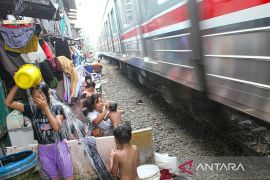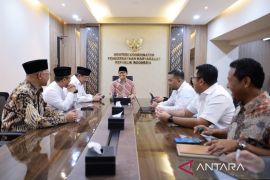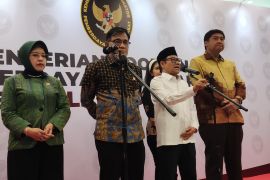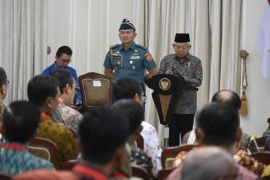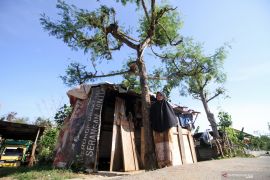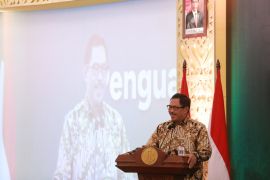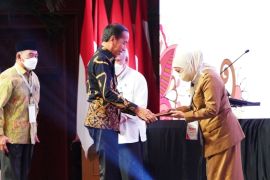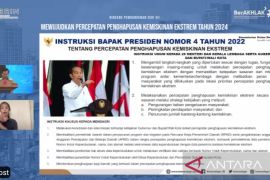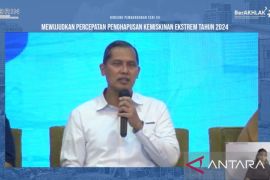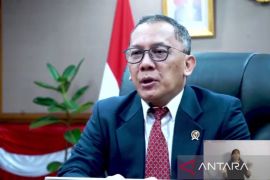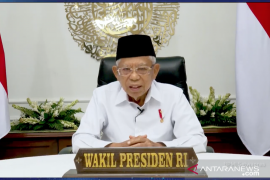In late 2023, the government is exerting its utmost efforts to deal with extreme poverty, as evidenced by the participation of all ministries in the journey toward an extreme poverty-free Indonesia.
The Ministry of Social Affairs has been playing a leading role in the alleviation of extreme poverty.
Minister of Social Affairs Tri Rismaharini revealed that, over the course of 2023, numerous cases of child bullying occurred in Indonesia. She remarked that bullying had led to lower self-confidence among victims, leading them to inflict self-harm.
Rismaharini pointed out that the trend was a result of the lack of support and good examples from adults, especially if the victims came from poor families.
Based on the standards of the World Bank, a family can be categorized as a non-poor one if it can generate at least US$1.9 daily.
The government has been implementing three grand strategies to achieve its extreme poverty alleviation target, namely reducing the people’s burden, increasing the people’s income, and suppressing the number of poverty pockets, or regions that house a large number of underprivileged people.
In the first strategy, the government has been striving to distribute social aid through the Family Hope Program (PKH) and Basic Commodity Assistance (BPNT) Program to 18.8 million beneficiary families (KPMs) registered in the Integrated Social Welfare Data (DTKS).
ismaharini said that the distribution of aid had reached 98 percent as of November 2023.
In detail, 99.23 percent of the budget, totaling Rp45.12 trillion (around US$2.8 billion) allocated for the BPNT Program, had been disbursed. Meanwhile, the government has been successful in distributing 98.20 percent of the Rp28.70 trillion (around US$1.8 trillion) dedicated to the PKH.
The supervision of social assistance distribution has been conducted by involving several institutions, such as the Corruption Eradication Commission (KPK), the Attorney General’s Office, Supreme Audit Agency (BPK), Financial and Development Supervisory Agency (BPKP), Bank Indonesia, the Financial Services Authority (OJK), and the National Police (Polri).
State-owned postal company PT Pos Indonesia has also been participating in aid distribution to people inhabiting remote, underdeveloped, outermost, and border (3T) regions.
As for the second grand strategy of increasing the people’s income, Rismaharini makes the most of her experience in implementing the Economic Heroes Program during her term as mayor of Surabaya to boost the income of KPMs.
Since November 10, 2022, she has been emulating the program, creating a similar program with nationwide coverage called the Nusantara Economic Heroes (PENA).
The program aims to assist KPMs seeking to run businesses. The program initially aimed to create an ecosystem suitable for KPMs to develop their businesses in 2023.
On a narrow scale, the PENA Program has been running in flats located in the Pangudi Luhur Integrated Center Complex, Bekasi, West Java, as well as Sentra Mulia Jaya Flats in Jakarta.
esidents of the flats are social welfare services' beneficiaries, who only need to incur Rp10 thousand (US$0.63) per month for renting the flats.
However, the status of the flats’ residents necessitates that they search for sources of income and equip themselves with the skills required for running businesses. The government will provide them with business capital once they possess the skills.
Officials stationed in the flats are monitoring the progress made by the underprivileged families to ensure that their income reaches the level above the standard set by the World Bank, thereby escaping from the poverty trap.
Beneficiaries of the Pena Program in the flats are expected to not only have the capabilities of running businesses but also adopt a better lifestyle, so they will not be vulnerable to plunging into poverty.
On a wider scale, the Ministry of Social Affairs’s PENA Program has been providing benefits to regular social aid beneficiaries, persons with disabilities, beneficiaries of social rehabilitation assistance (ATENSI), and natural disasters' victims who lost their sources of income.
The ministry is expecting beneficiaries of the PENA Program to offer their products to those in the upper-middle class. To that end, it has been applying two measures, such as holding online trainings, with the aim of equipping the program’s beneficiaries with entrepreneurial and financial management skills.
In addition, the ministry has been empowering its youth product design organization, Tata Rupiah Nusantara, to redesign the products of micro, small, and medium enterprises assisted by the PENA Program.
In 2023, the total number of PENA beneficiaries had reached 12,967 KPMs. The results of the program began to become apparent in June, when 2,707 KPMs graduated from the program and were deemed ready to overcome extreme poverty.
The program continued to see a rise in graduates in the following months. They are also expected to be ready to graduate and remove themselves as beneficiaries of regular social assistance.
owever, some of the beneficiaries from the PENA Program are still hesitant to move on from receiving regular aid due to their income still standing below the minimum wage of their respective cities and districts.
In response to this issue, Rismaharini visited regions to encourage beneficiaries to move forward and stop being social assistance beneficiaries so that other people in need could benefit from the aid.
In November, a total of 10,073 KPMs of the PENA Program were declared ready to graduate. Persons with disabilities account for most of the graduates.
The Ministry of Social Affairs has also been taking responsive measures to reduce the number of poverty pockets. In fact, Rismaharini has paid visits to 3T regions, such as Asmat District in South Papua, Nunukan and Sebatik islands in North Kalimantan, and Mapia Islands in Papua.
Moreover, the ministry has been distributing aid to regions affected by the global heat phenomenon El Nino-induced disasters in various regions throughout 2023, including the famine-hit districts of Yahukimo and Puncak in Central Papua Province.
This year, the ministry also devised several innovative aid programs, such as social aid dedicated to orphans as well as food assistance targeting children living in social shelters, persons with disabilities, and the elderly living alone. The budget for the implementation of the programs in 2024 has been prepared.
All efforts made by the Ministry of Social Affairs in 2023 serve as manifestations of its commitment to creating a more just and empowered society. It should be noted that the ministry’s programs do not merely revolve around financial assistance, as they also touch upon aspects of education, health, and people’s participation.
By consistently strengthening and expanding its efforts, Indonesia will succeed in overcoming poverty challenges and building a better future for its people.
Related news: Minister discusses extreme poverty alleviation with Jakarta governor
Related news: VP reminds regional heads of key role in eradicating extreme poverty
Translator: Devi N, Tegar Nurfitra
Editor: Anton Santoso
Copyright © ANTARA 2023

